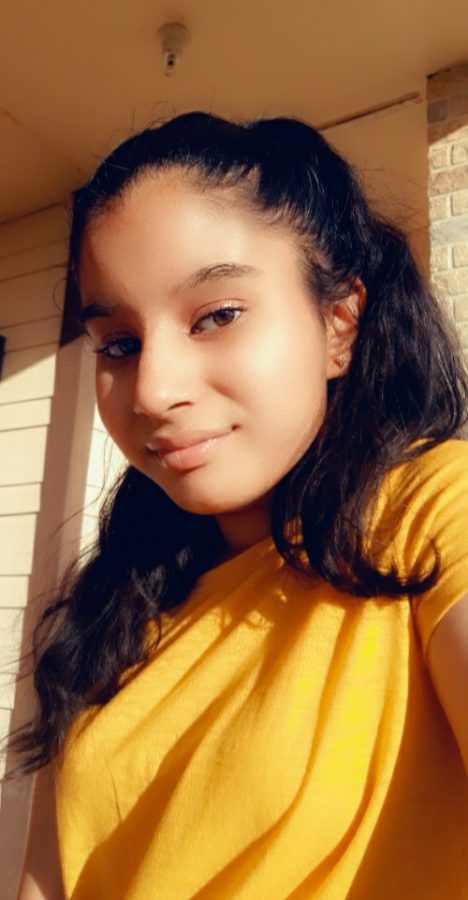The painful transition of a student from Indian to American
More stories from Parneet Kaur
“They think I am an alien.”
That was what I thought when I first went to school in America. Why? Let’s go to the start of the story.
It was a summer morning in India, a cold breezy day that felt abnormal. I did not go to school that day because my family and I were leaving on a flight to America. My parents wanted to move to America to join my aunt and uncle who lived in Sacramento. I was very excited to go on a plane for the first time at age seven, thinking people will be similar to me. I thought my life was going to change!
After a 15 hour flight, we finally landed and I could not believe my eyes! I was standing on another continent! A few days later, my parents told me that they were going to enroll me into a school. I got excited.
Soon, it was the first day of school, I woke up and got ready. My aunt dropped me off and I looked around.
Not a single person looked like ME. They all had blond hair and a white skin tone. I had dark hair and brown skin. They all were speaking English and listening to American music. I was listening to Indian/Punjabi music. I soon realized I was the outlier. I realized people were staring at me.
I soon learned there were “popular” kids. They were mean to me. I would hear the buzzing going around the classroom about me but I could not understand due to my inability to speak English.
I went home tired and told my mom, “I have no friends.” She told me that everything would be fine and soon it was the next day.
“Oh, look! It’s the Indian girl,” were the first words I heard as everyone gave me the stare again. It felt like the floor had slipped below me and I had fallen into a deep black hole. I could not believe how others treated me. My parents told me that everyone is nice but that day I realized that not everyone is.
Over the course of my first year in the United States, I learned that there are many differences between my culture and American culture. I learned that there is a certain way of living. In America, people will spend their whole day inside a building — going to school for most of the day, coming home, finishing their homework and playing video games— but in India everyone would be outside. Most of the time schooling would be outside, out in the fields, and the days felt very long.
I was confused because I was yet not used to how things were in the U.S. In India we had a totally different life style so I had to face many challenges in America. I had to adapt to American type of music, food, and the way of living.
In India we would be outdoors most of the time and we didn’t use a lot of technology, like computers. Even the English I did know was pronounced differently because of Britain’s influence in India.
I was also bullied because I did not understand some common social constructs. For example, in India we would ask the teacher everything, like to use the Kleenex, but in America, students just got up and used it.
A few years later in transition to high school, I realized it is important to represent my culture and be proud of it because I saw people supporting their culture and being in cultural clubs. It took a while to understand that it is important to teach others to be proud rather than being disappointed in their culture and who they are.
I helped many other Asian/European people realize that who they are and their culture is so valuable. Many students learned that they should not let others tell them what to do and how they should look. I helped students become comfortable with their culture and taught them to represent it. My peers learned to become who they are and not let anyone tell them what culture they should belong to.
I helped teach my close friends what their culture really means and how important they are to represent it. I helped them know how to stand up if anyone judges them based on their religion.
I learned through others that our culture is what defines us and we cannot change that. I learned to make friends that are different from me. We should learn to embrace our culture. We should learn to protect it.
Your donation will support SacSchoolBeat student journalists and will allow us to work with more student journalists to cover education on campuses and in school districts in the Sacramento region. A timely mini-grant from the Sacramento Press Club has allowed us to conduct our summer training and continue the program at least through the end of the fall semester.



Diya • Apr 11, 2025 at 10:05 am
THIS IS THE SAME INCIDENT I AM FACING CURRENTLY BUT LUCKILY I AM NOT GETTING BULLIED THIS FILL THE SAME ALSO I AM PROUD OF MY OUN INDIAN CULTURE AND I WILL KEEP MY SOUL AND HEART INDIAN ALL THE TIME
I LOVED IT !